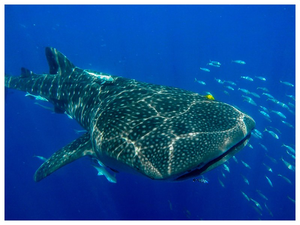Kochi: India is poised to adopt the National Plan of Action for Conservation and Management of Sharks (NPOA).
On Monday, a meeting was jointly organised by the Department of Fisheries, the Central government and the Bay of Bengal Programme Inter-Governmental Organisation (BOBP-IGO) in which feedback from all stakeholder was taken paving the way for NPOA implementation.
The draft of the NPOA outlines key priorities for effectively managing and conserving shark populations in Indian waters.
Discussions at the meeting cantered on these critical areas, ensuring a comprehensive and actionable plan. These areas include legal framework, capacity building, data collection, scientific research, regulation of fishing, biodiversity and ecological considerations, and regional cooperation.
The proposed plan also envisages enactment of law for waters between 12 and 200 nautical miles, implementation of log book system, awareness building among fishermen, encouraging fishermen to follow gear regulations and bycatch reduction measures among many others.
Neetu Kumari Prasad, Joint Secretary to the Department of Fisheries said developing NPOA is vital for the sustainability of the shark fishery.
“We’ve engaged extensively with fisher associations, research bodies, and NGOs to create a comprehensive plan. The plan is expected to improve India’s understanding of its shark population and the communities dependent on it. This knowledge will equip the government with the tools to make informed decisions on shark fisheries and conservation in the country,” said Prasad.
P Krishnan, Director of BOBP said that the plan aims to promote sustainable fishing practices, ensuring the long-term health of both shark populations and the fisheries sector.
“This will help support coastal communities by facilitating the development of alternative livelihood as more than two lakh people in India earn over 50 per cent of their livelihood on shark fisheries,” Krishnan said.
He said that the NPOA plays a crucial role in regulating India’s substantial involvement in the global shark trade.
“This includes guaranteeing compliance with the Convention on International Trade in Endangered Species of Wild Fauna and Flora (CITES) and actively combating illegal, unreported, and unregulated (IUU) fishing activities”, said Krishnan.
–IANS


Comments are closed.